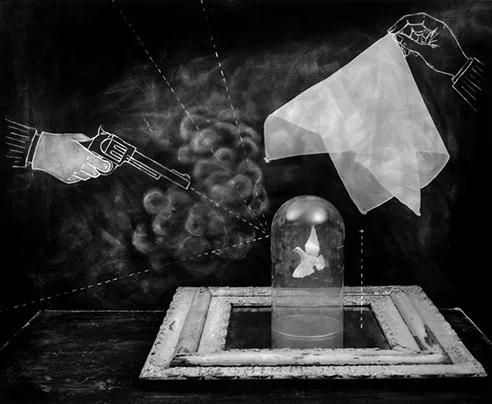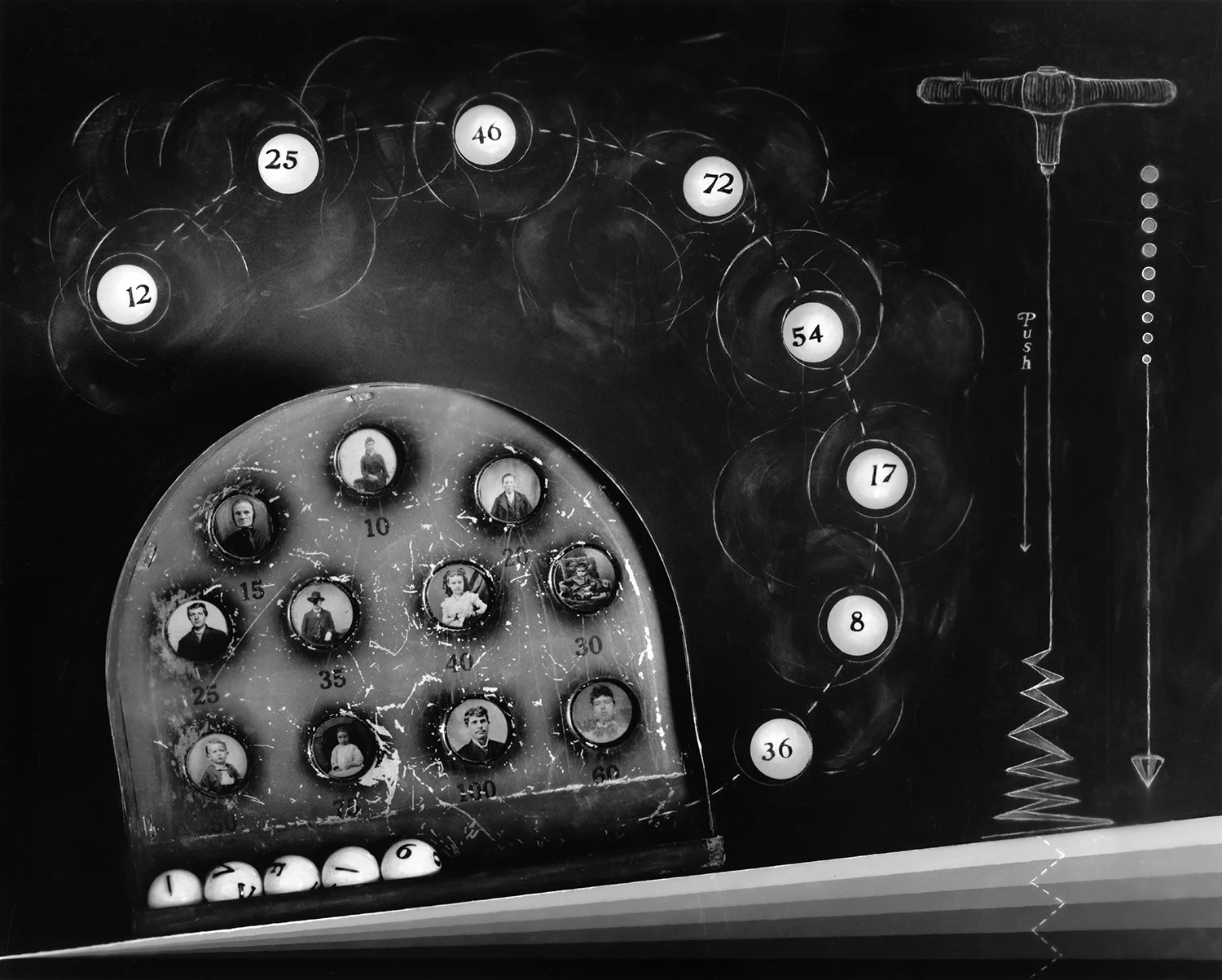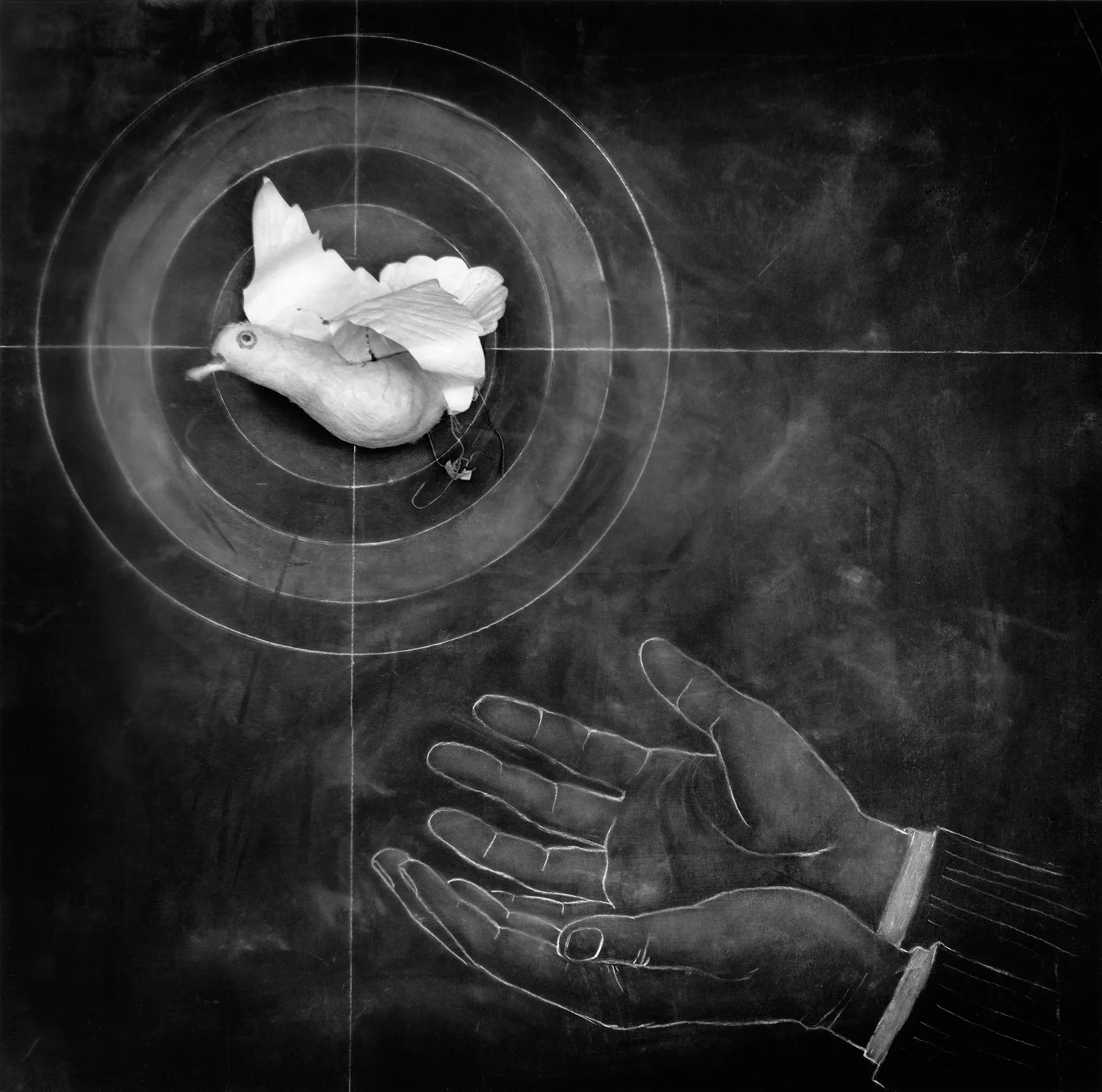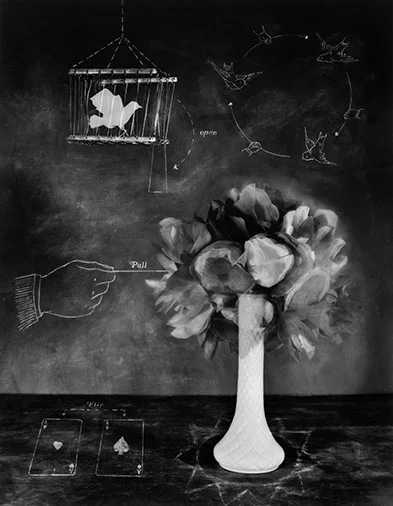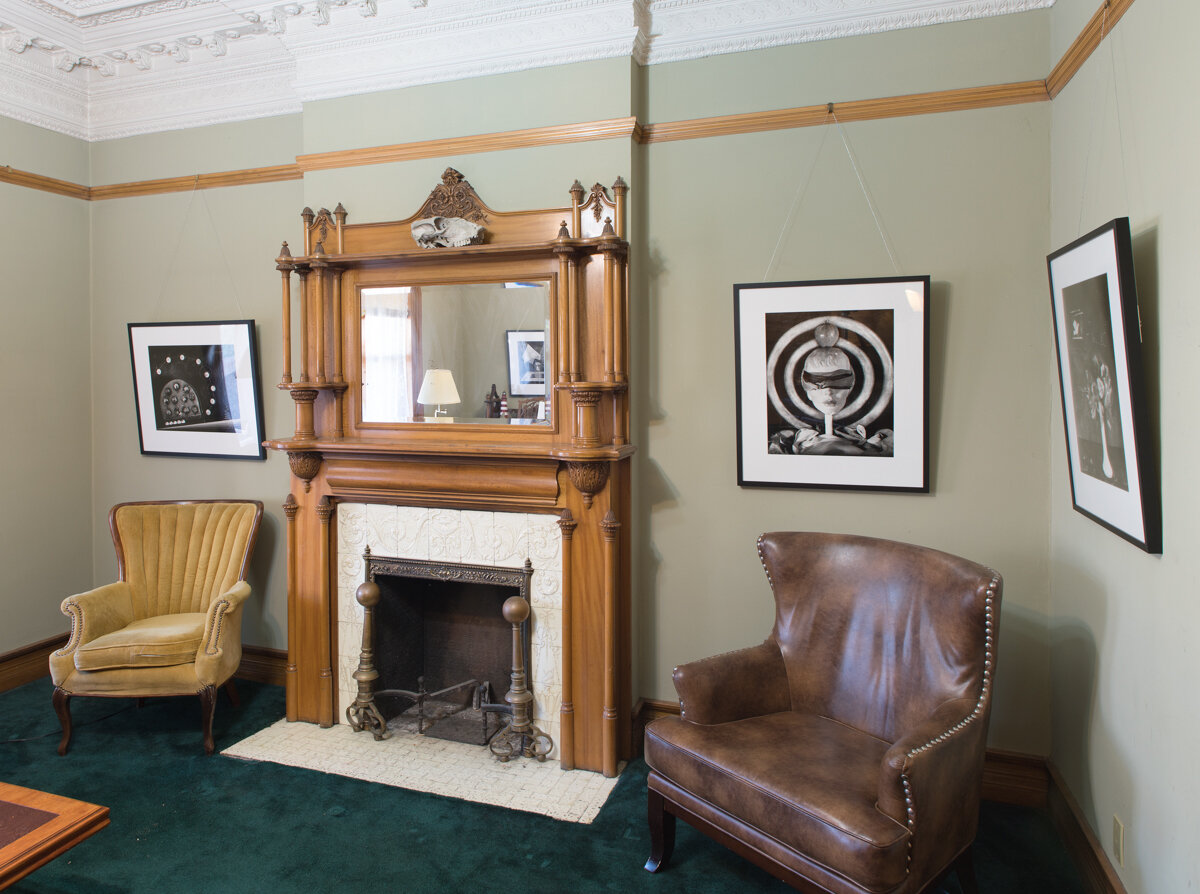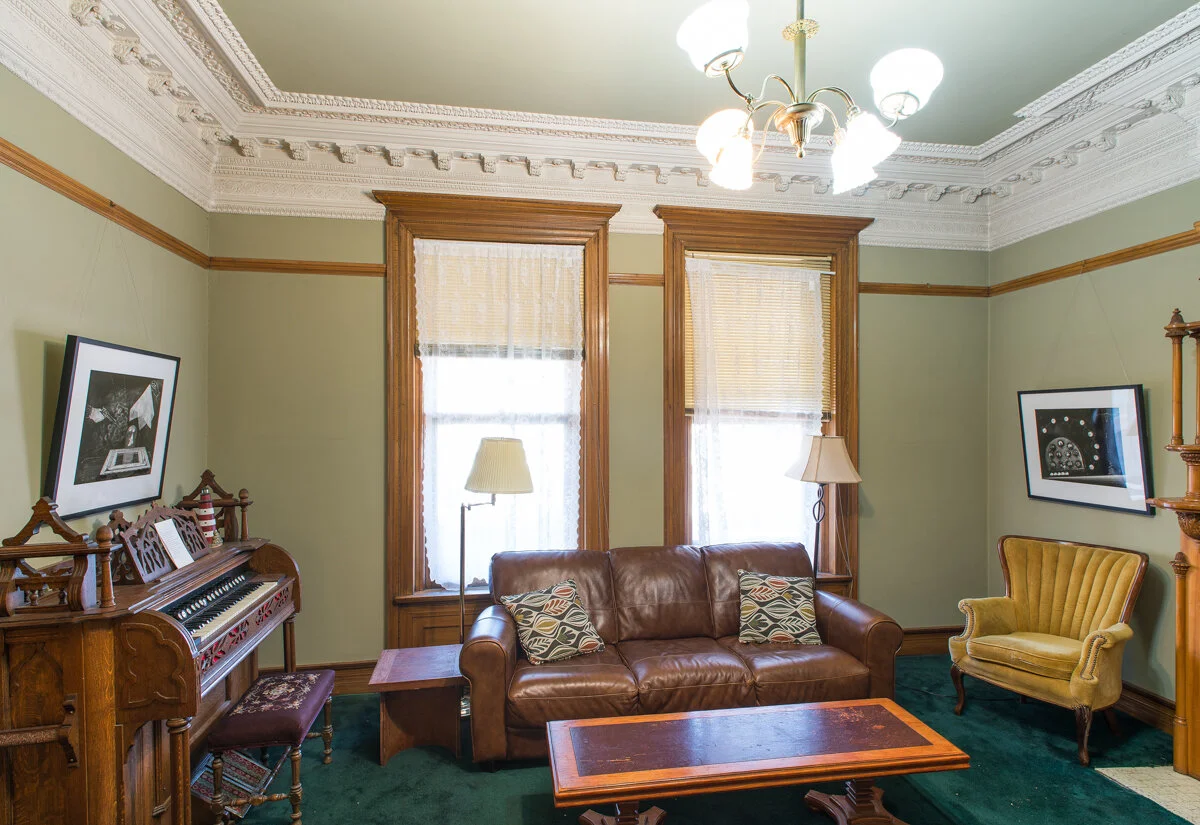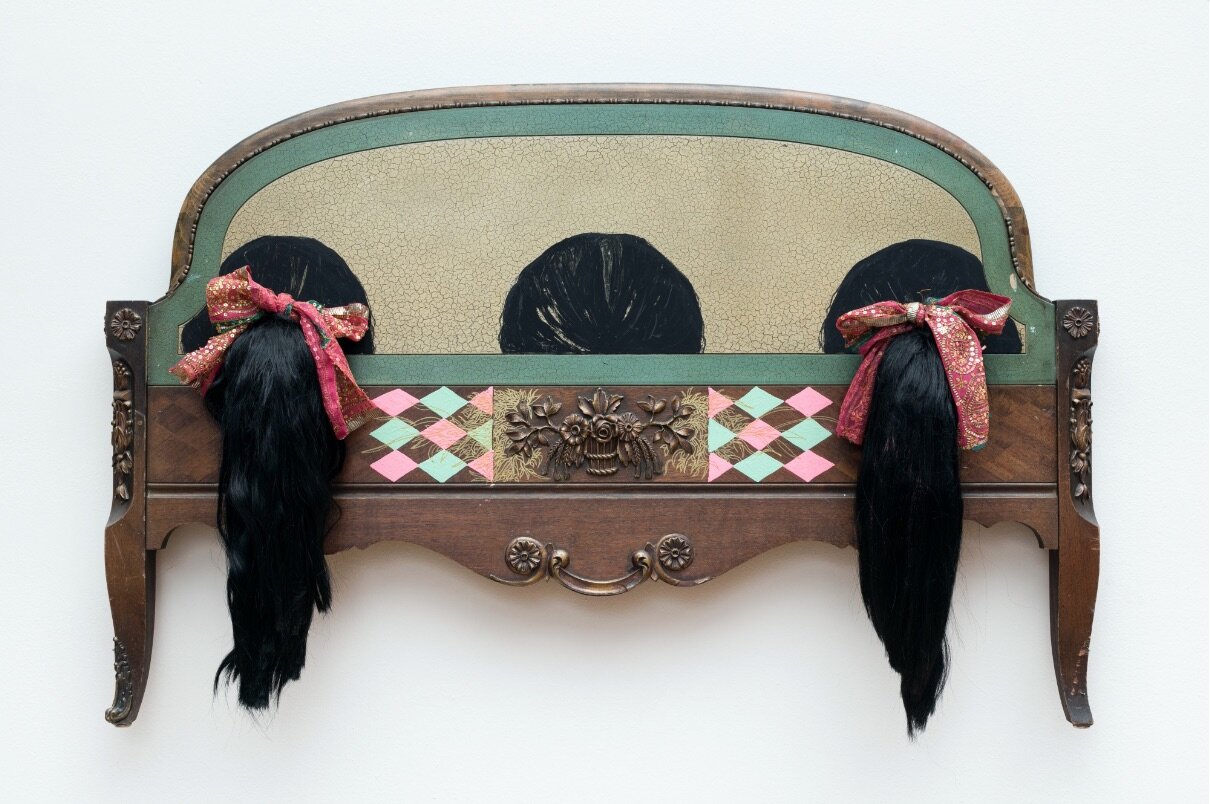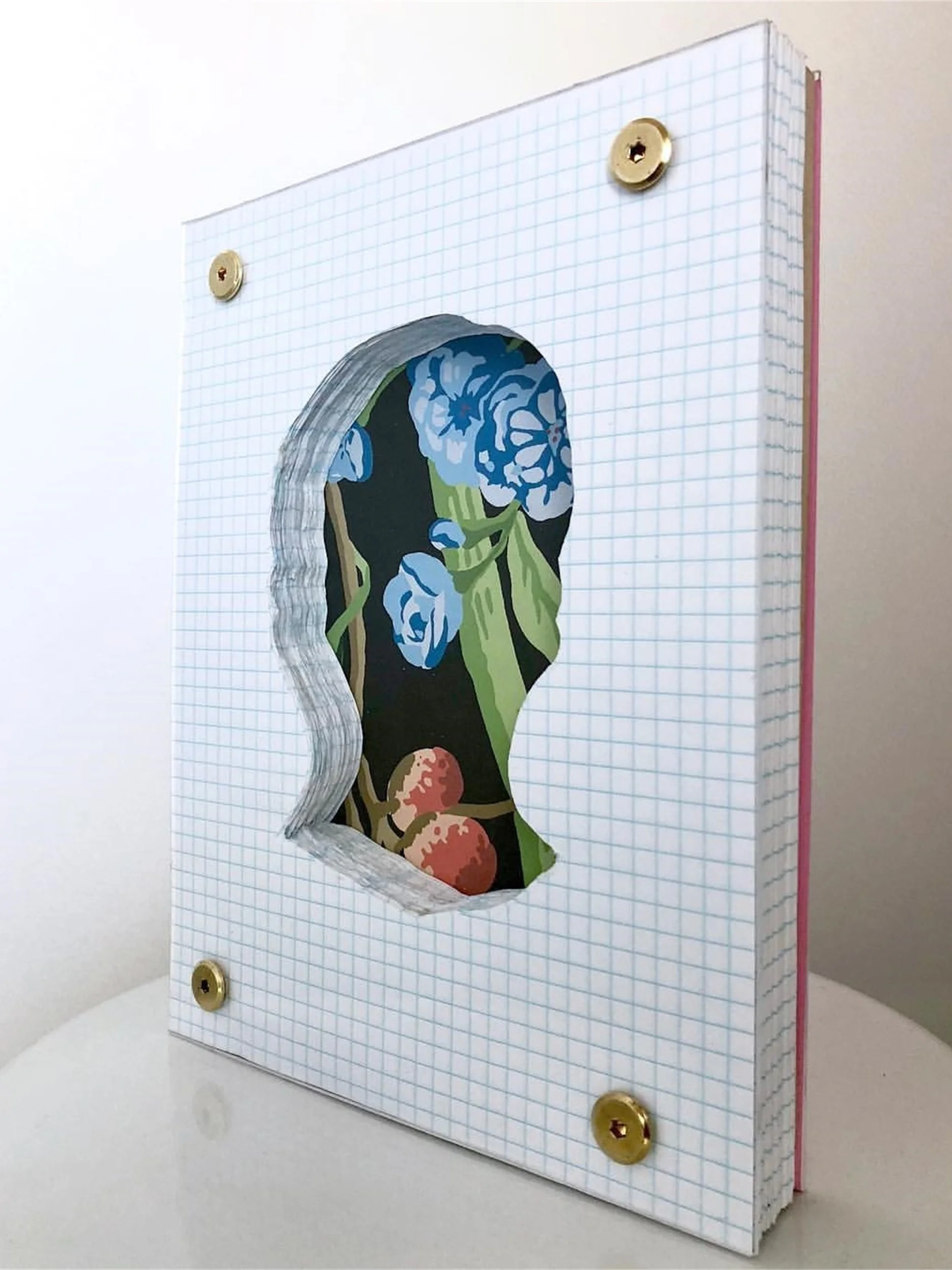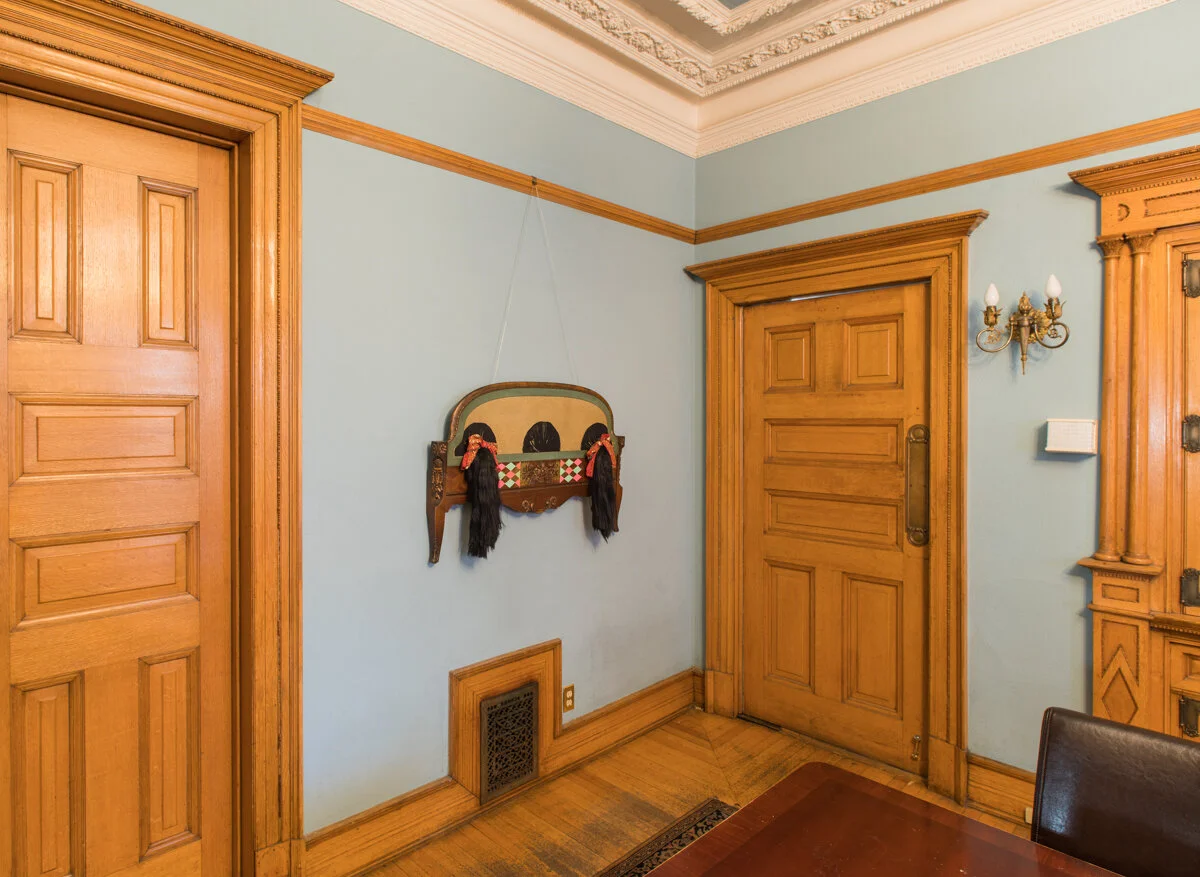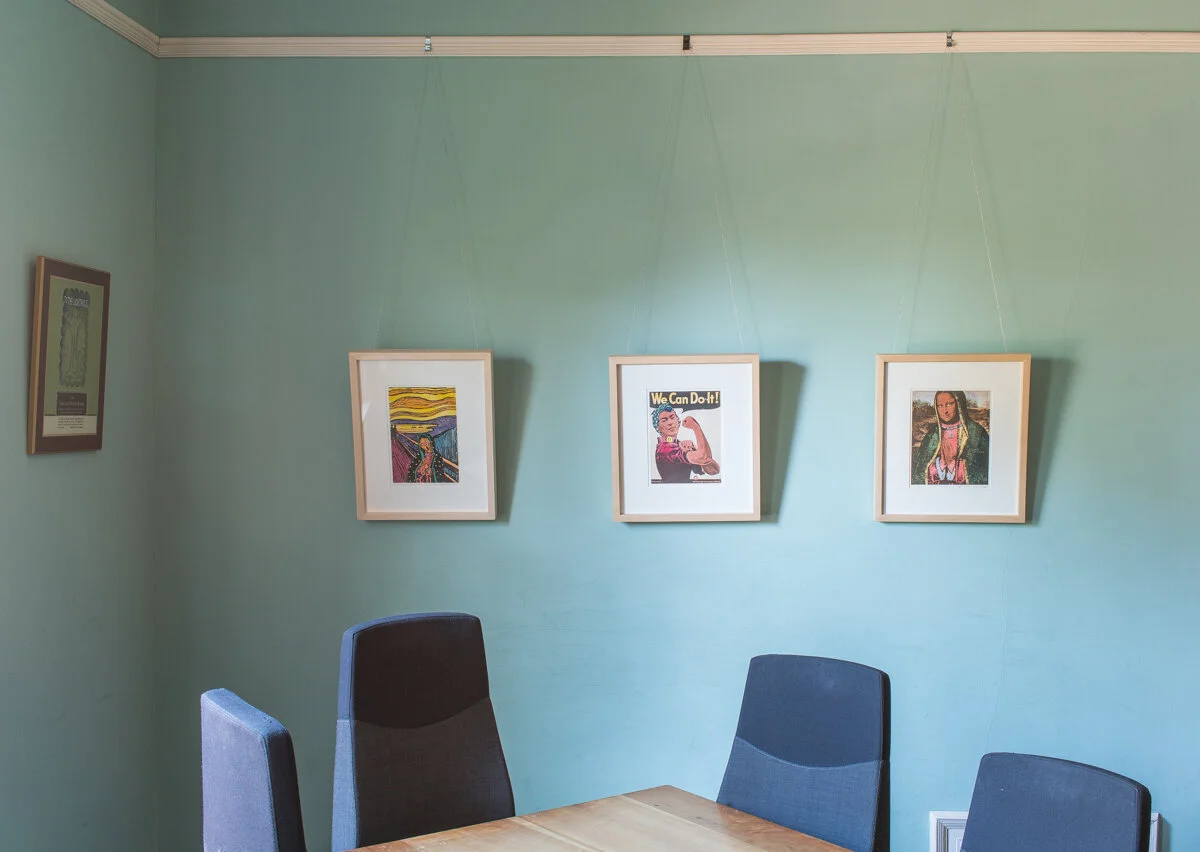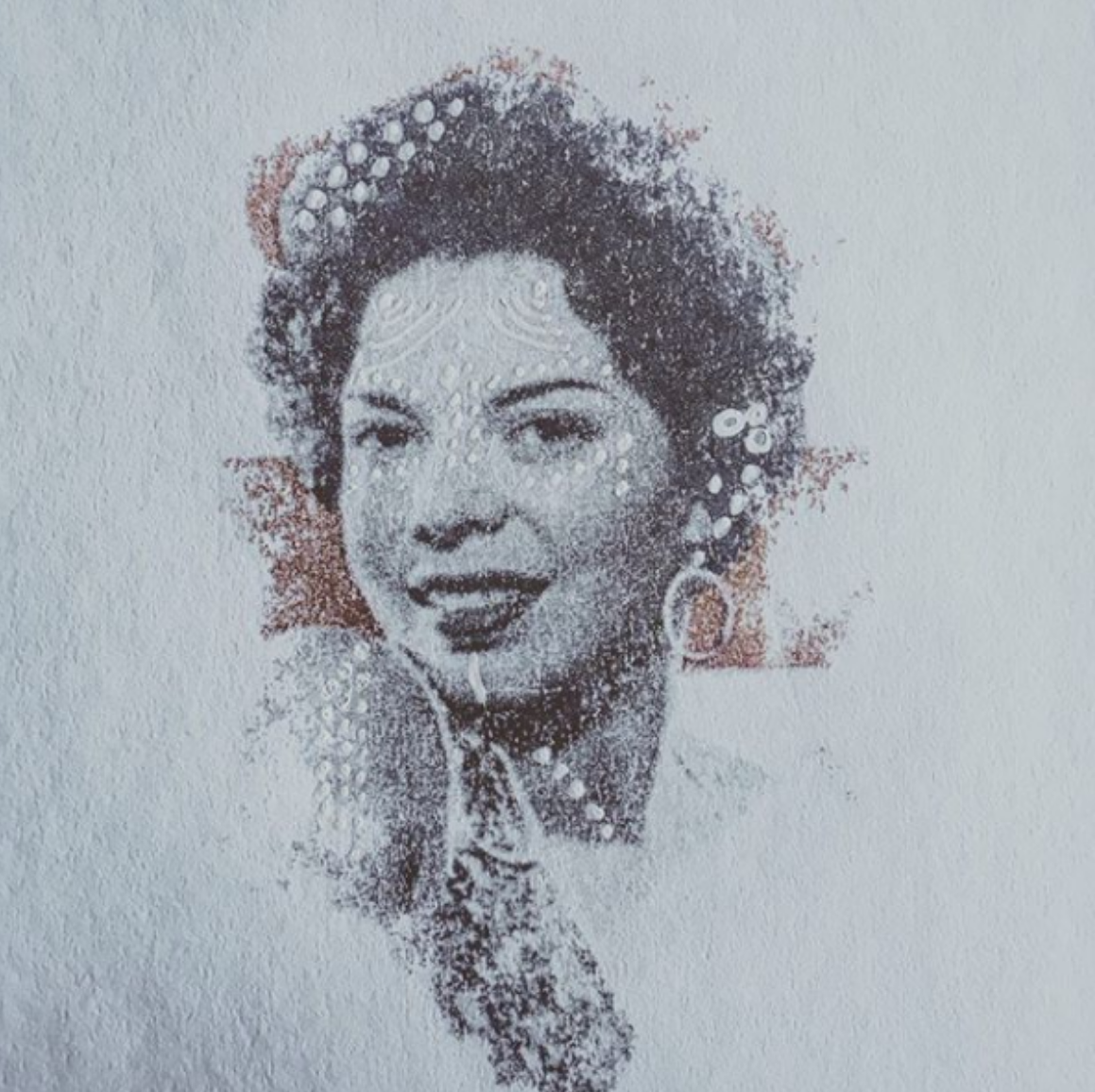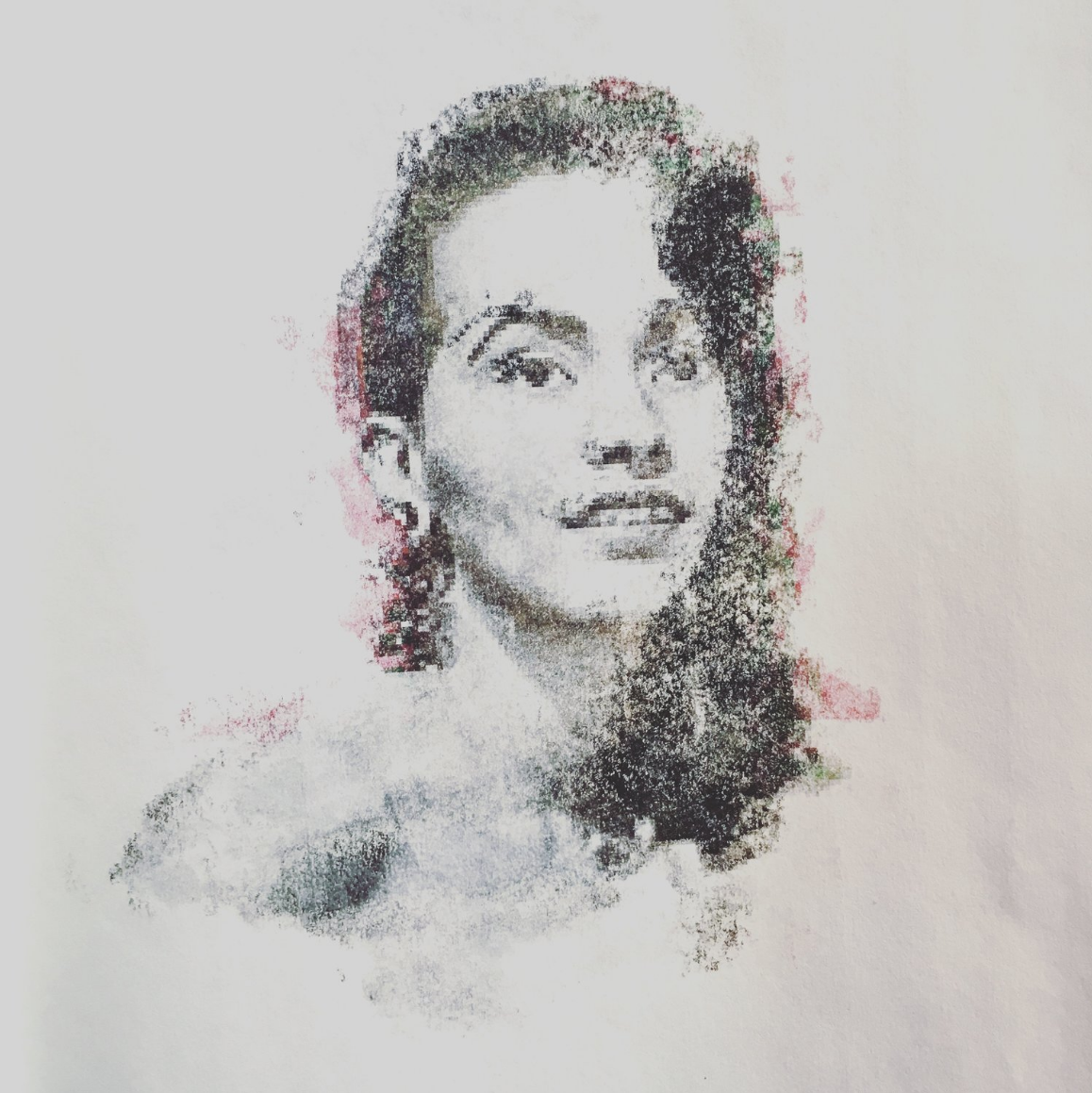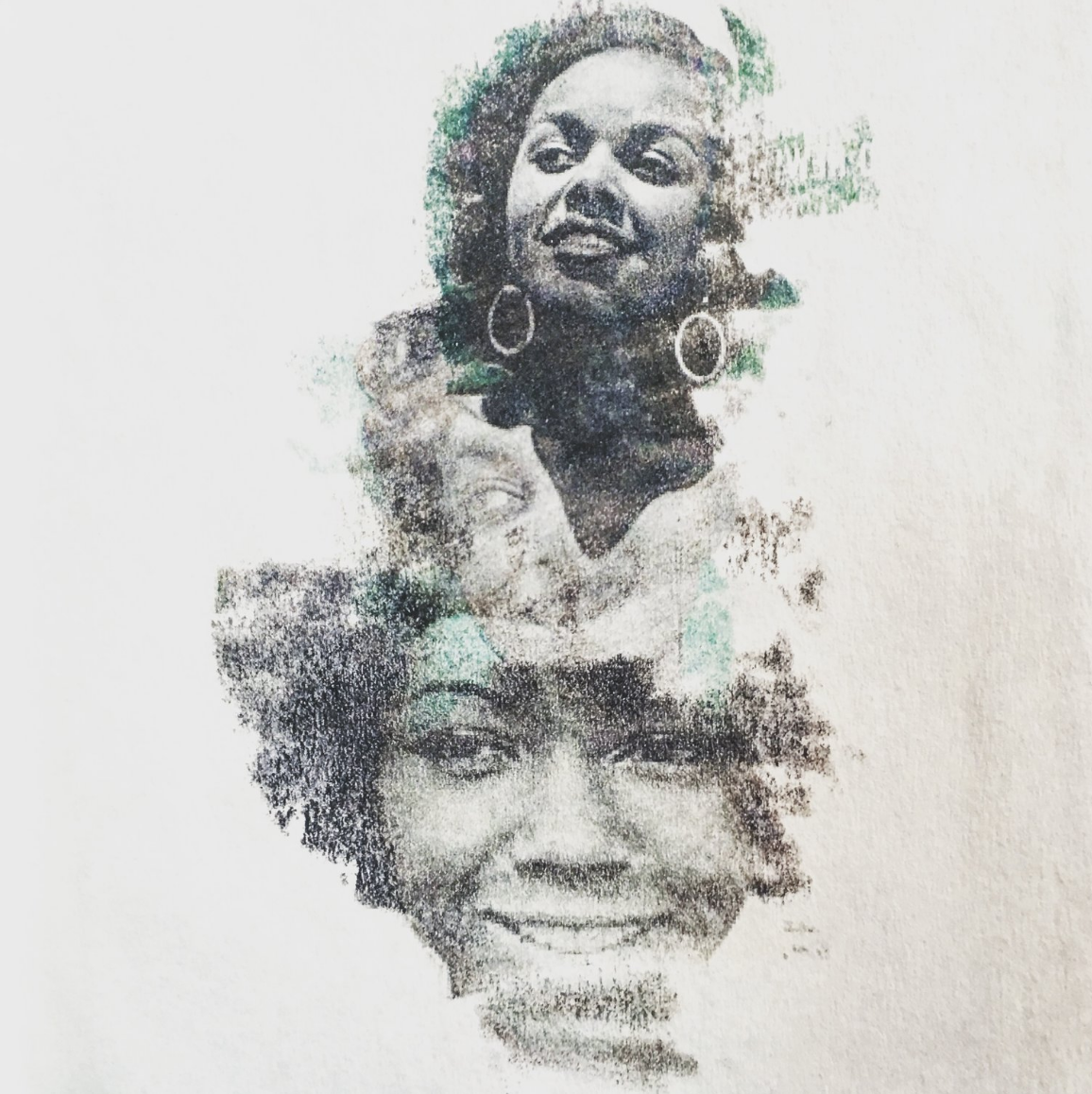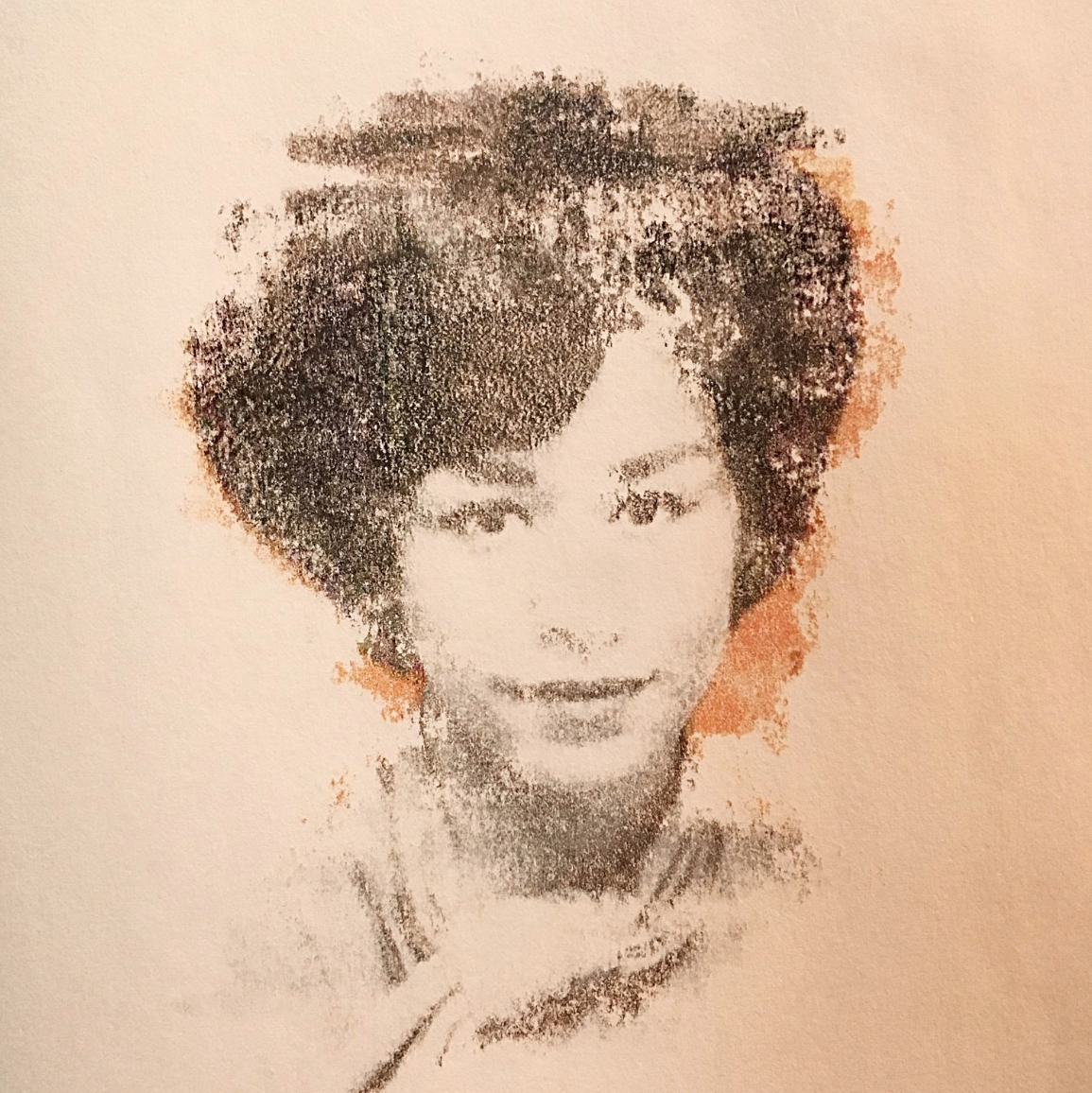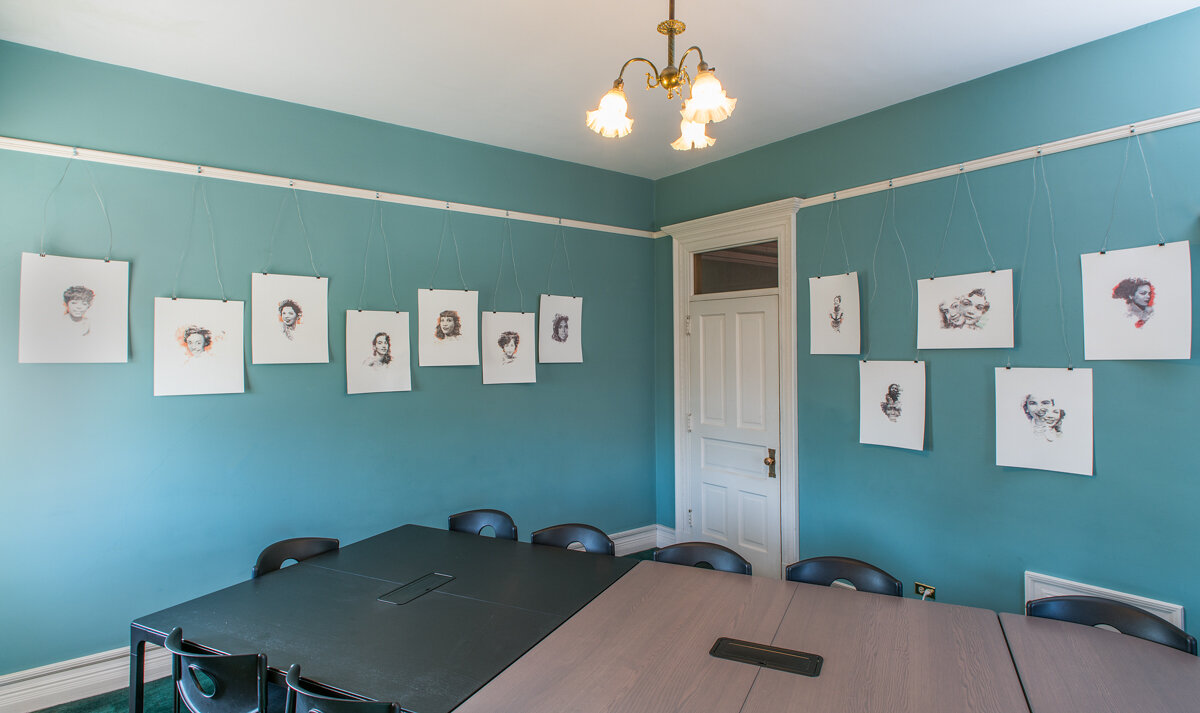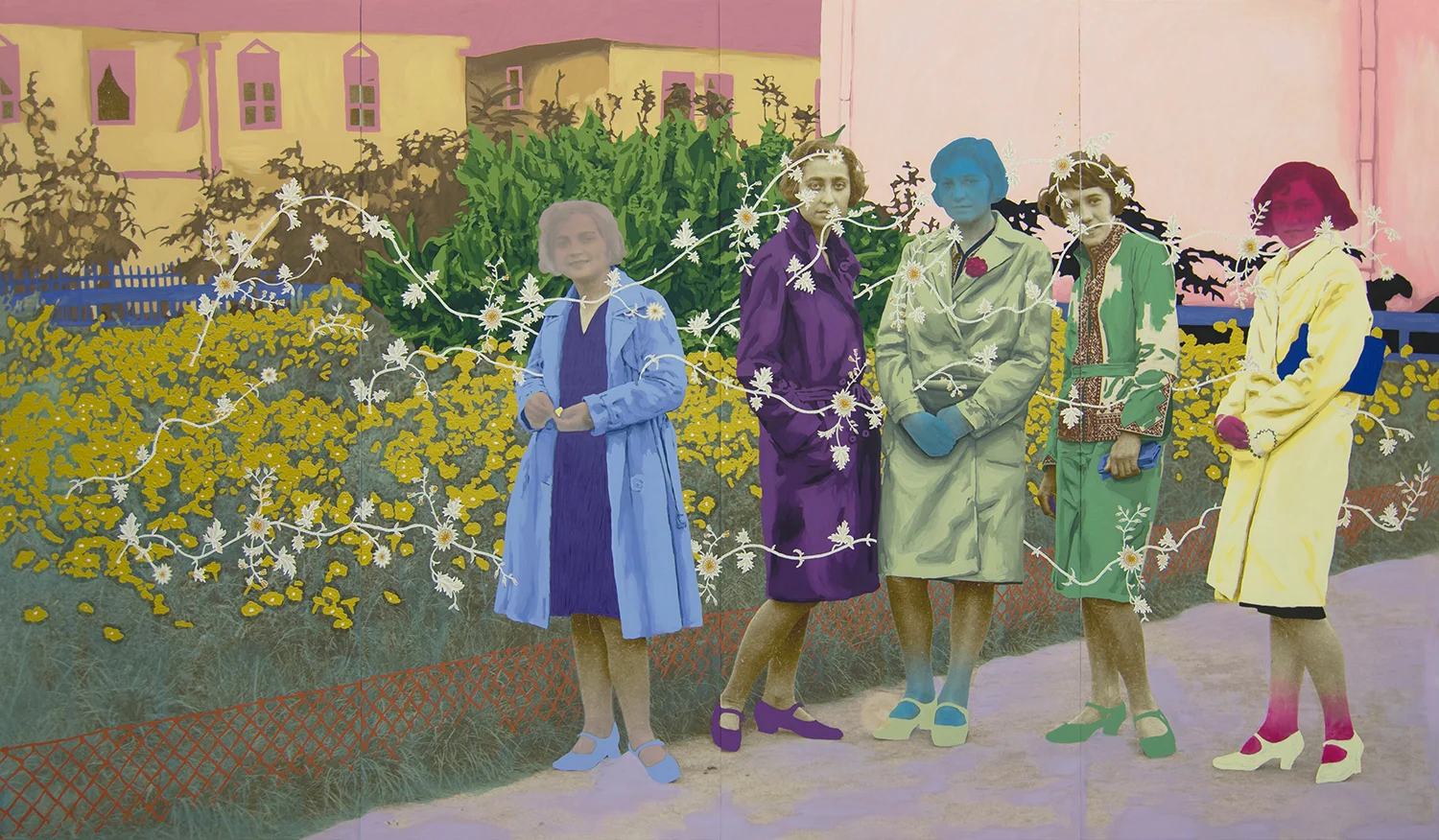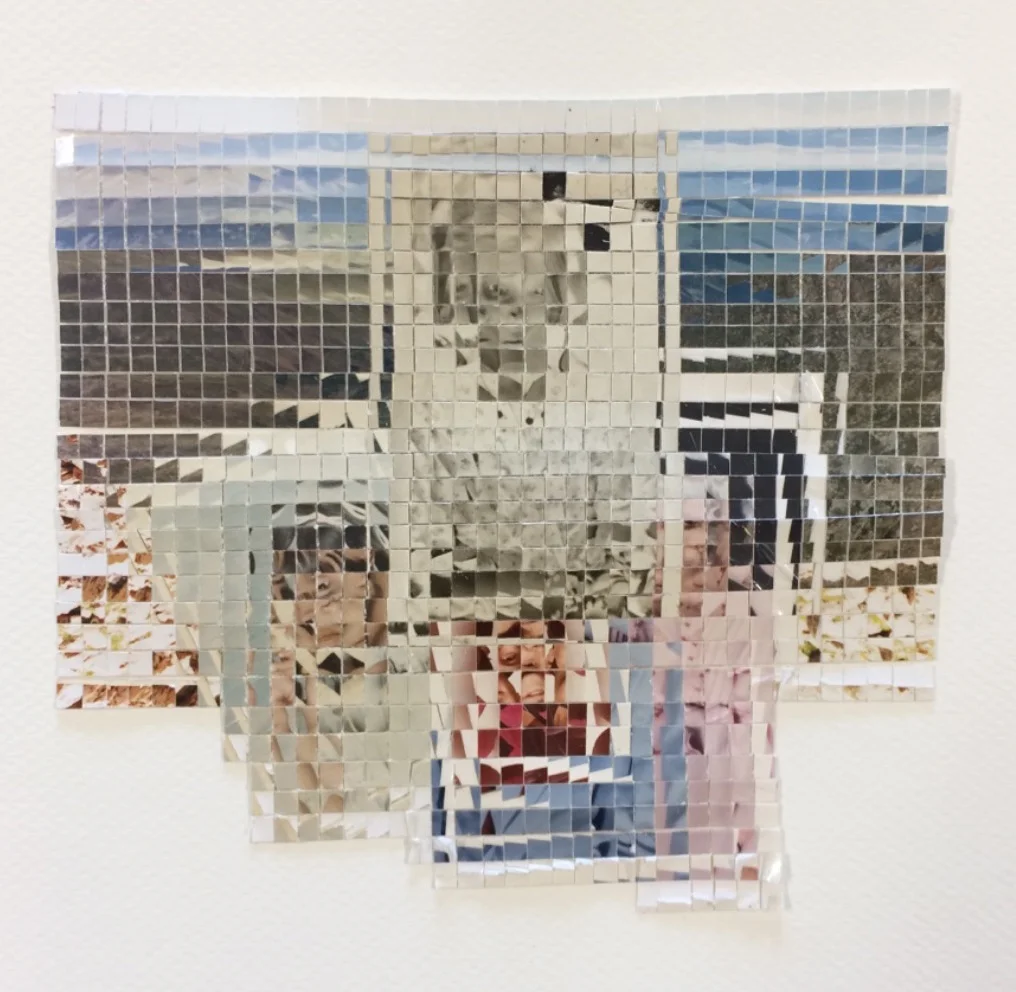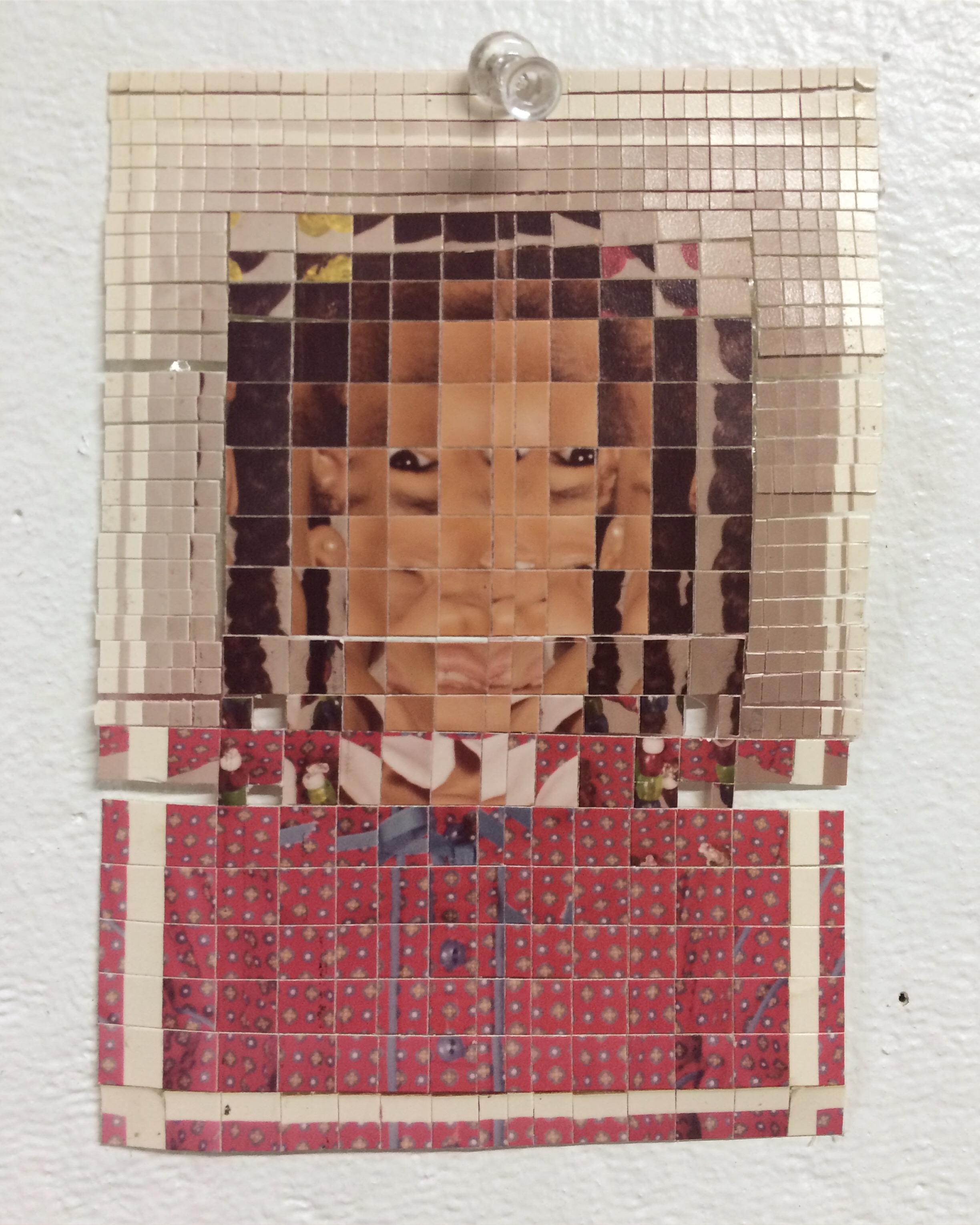Daisy Patton’s work in the Grotto, photography by Matthew Pevear
BUTTERFLY EFFECT, group show
Lighthouse writers workshop
September 27 - December 31, 2019
opening reception: October 4, 2019, 6-8 pm
“Never doubt that a small group of thoughtful, committed citizens can change the world. Indeed, it’s the only thing that ever has.” - Margaret Mead
tya anthony
carol golemboski
suchitra mattai, courtesy of k contemporary
tony ortega, courtesy of william havu gallery
daisy patton, courtesy of k contemporary
george p. perez
As part of Lighthouse Writers Workshop’s 2019 Big Read, a project of the National Endowment for the Arts, Hey Hue presents Butterfly Effect, an exhibition exploring the ways political resistance ripples through a family, a community, and a nation as inspired by Julia Alvarez’s In the Time of the Butterflies. The exhibition features six current or former Denver-based artists whose work speaks to various aspects of the novel’s themes. A portion of the proceeds from the sale of displayed artworks will benefit Lighthouse’s Fellowships for free or partial tuition to workshops, master classes, and extended programs for talented writers experiencing financial hardship. Past recipients include veterans, writers of color, and single parents.
Preview the exhibition
PARLOR - CAROL GOLEMBOSKI
Carol’s works from her That Old Black and White Magic series relate analog photography to the golden age of magic. She acts as the illusionist, suspending objects and fooling the eye with her collision of silver print photography, drawing, and photograms. Carol says, “In this digital age where viewers are primed to recognize and even expect photographic manipulation, the traditional silver print still holds a mystique that masks its potential for misdirection.” Hey Hue selected these works to embody the tenuous, trickster nature of the Trujillo regime in the novel.
The Smoking Gun, Carol Golemboski, Silver print with drawing and photogram, 26” x 29-3/4”, $1,800 (30% goes to Lighthouse’s Fellowships)
Numbers Game, Carol Golemboski, Silver print with drawing and photogram, 26” x 29-3/4”, $1,800 (30% goes to Lighthouse’s Fellowships)
Target Girl, Carol Golemboski, Silver print with drawing and photogram, 30” x 25-3/4”, $1,800 (30% goes to Lighthouse’s Fellowships)
Target Practice, Carol Golemboski, Silver print with drawing and photogram, 21-1/4” x 20-3/4”, $1,600 (30% goes to Lighthouse’s Fellowships)
Parlor Tricks, Carol Golemboski, Silver print with drawing and photogram, 30” x 25-3/4”, $1,800 (30% goes to Lighthouse’s Fellowships)
DINING ROOM - SUCHITRA MATTAI
Suchitra’s work questions historical and authoritative narratives and often reclaims cultural artifacts, which are often colonial and domestic in nature such as furniture, wallpaper, textiles and everyday objects like graph paper, plates, and belts. Born in Guyana and living in Nova Scotia, India, and throughout the United States, these diverse natural and cultural environments have greatly influenced her work and research. Hey Hue chose these two artworks to speak the Mirabal sister’s education at boarding school. Minerva receives her first taste of political resistance through her friend Sinita, whom she bunks with. María Teresa begins her writing practice at school, which sustains her sanity during her later imprisonment.
Forward thinking in an age of sadness, Suchitra Mattai, headboard, faux hair, sari, gouache, acrylic, 18”h x 30”w, $4,250, courtesy of K Contemporary
Blindsided (Absent Father), Suchitra Mattai, Hand-cut graph paper, plexiglass, wallpaper, 11” x 8-1/2” x 1-3/4””, $2,100, courtesy of K Contemporary
VIRGINIA WOOLF ROOM - TONY ORTEGA
Tony’s work seeks to bring about a better understanding of cultural diversity by addressing the culture, history, and experiences of Chicanos/Latinos through his art. His hand-colored etchings and silkscreen on panel works vibrantly and deftly combine art history, pop culture, and religion. The Mirabal sisters and their husbands became the face of the underground resistance against Trujillo. The rest of the country saw them as mythical heroes until three of the four sisters lost their lives at the hands of Trujillo’s henchmen, becoming national martyrs.
Mona Lupe, Tony Ortega, Hand-colored etching, framed, 10” x 7-3/4” image, $400, courtesy of William Havu Gallery (20% goes to Lighthouse’s Fellowships)
Frida, we can do it!, Tony Ortega, Hand-colored etching, framed, 10” x 7-3/4”, $400, courtesy of William Havu Gallery (20% goes to Lighthouse’s Fellowships)
Lupe’s Scream, Tony Ortega, Hand-colored etching, framed, 10” x 7-3/4” image, $400, courtesy of William Havu Gallery (20% goes to Lighthouse’s Fellowships)
JOHN STEINBECK ROOM - TYA ANTHONY
Tya’s Complexion series explores the history of the Black magazine. The digitally archived then physically manipulated series confronts foundations and outcomes of colorism perpetuated within the history of media and throughout many cultures of color around the globe that value Caucasian standards of beauty. In the context of In the Time of the Butterflies, Hey Hue selected these works as a representation of the numerous young women Trujillo took as mistresses whom he isolated from their families, friends, and communities until they were veritable ghosts, such as 17-year-old Lina, a schoolmate of Minerva’s. Trujillo later attempts to seduce Minerva during their fraught dance during his Discovery Day celebration; Minerva slaps him after his forward advances, which catalyzes the Mirabal family’s first incarceration: Papá.
Within, Tya Anthony, New media on watercolor paper, 16” x 20”, $480
Glitch, Tya Anthony, New media on watercolor paper, 16” x 20”, $500
Woman as Muse, Tya Anthony, New media on watercolor, 16” x 20”, $480
Mixed Right, Tya Anthony, New media on watercolor paper, 16” x 20”, $480
GROTTO - DAISY PATTON & GEORGE P. PEREZ
Daisy’s Forgetting is so long series explores the concept that we die two deaths: “the first is our actual passing; the second if when the last person who remembers us takes their final breath.” Family photos remain “integral to extending this quasi-life.” Daisy uses found photographs, which she then enlarges to life size, and then paints over with a collection of vibrant colors and patterns that despite their cheeriness evoke a haunting quality. Untitled (Leonar 5746) speaks to the ghostly presence of Patria, Minerva, and Mate in Dedé’s life. through the opaque, painted-over faces of three women. The two other women could symbolize Dedé and the “interview woman” who aim to carry on the Mirabal sisters’ legacy.
Untitled (Leonar 5746), Daisy Patton, Mixed media painting, 80” x 136”, $25,000, courtesy of K Contemporary
George uses found photography, including those from his childhood, as the basis of his work. For these works, George slices the source images into slivers, rearranges the strips and then slices and rearranges them again in order to create an analog pixellation that is simultaneously recognizable and unfamiliar. The experience of viewing these works mimics the fractured, ambiguous reality of political oppression and personal grief. The use of school portraits speaks to a loss of innocence.
Untitled, George P. Perez, Lightjet print, tape, $3,500 (50% will support Lighthouse’s Fellowships)
Portraits in Landscape, George P. Perez, Vintage photos, tape, $500 (25% will support Lighthouse’s Fellowships)
A Little Mini Mini, George P. Perez, Vintage photo, tape, $500 (25% will support Lighthouse’s Fellowships)
George P. Perez’s work in the Grotto, photographed by Matthew Pevear


